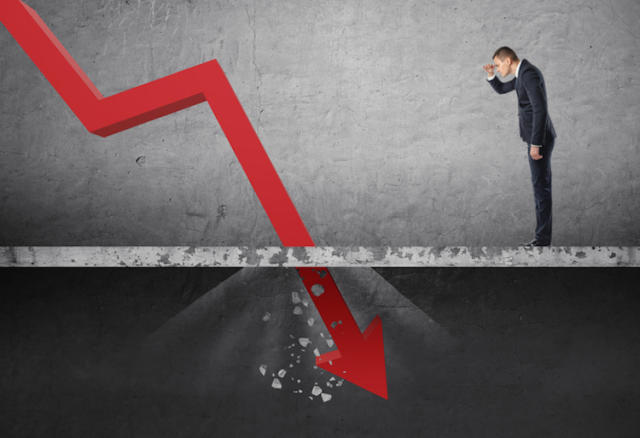
Healthtech investing falls 48% in 2022, still ends up as second biggest year ever
The $15.3 billion raised just beat out 2020's $14.7 billion, but was far below 2021's $29.2 billion

In the end, total funding for the year barely made it to half of what was raised in 2021, falling almost 48% to $15.3 billion for the year, according to data out from Rock Health. That does still make it the second largest year on record, slightly higher than the $14.7 billion raised in 2020.
The investments were made raised across 572 deals, down 22% from the 738 deals in 2021, for an average deal size of $27 million, down 33% from the $39.7 million deal size the prior year.
On a quarterly basis, Q4 saw a 23% increase in funding from Q3, growing from $2.2 billion to $2.7 billion, but that was still less than half of the $7.4 billion in Q4 2021.
"In late 2021 and early 2022, what went up started to come down. Supply chain challenges, inflation, interest rate hikes, and investor pullback reversed investment momentum. H2 2021 averaged $7.1B in quarterly funding, a small decline from the first half of that year," Rock Health wrote in its report.
"In 2022, the rate of decline accelerated: H1 2022 averaged $5.2B in quarterly funding, and in H2 2022 average quarterly funding fell to $2.4B. To illustrate the slope of change, Q4 2022’s $2.7B in funding sits 68% lower than Q2 2021’s summit."
In 2022, there were 35 so-called "mega deals," meaning those of at least $100 million, down 60% from the 88 of those deals in 2021, and even down 19% from the 43 such deals in 2020. In 2022, some of the mega deals included $330 million raised by in-home medical company DispatchHealth, $300 million raised by virtual care and digital medicine company Biofourmis, and $300 million raised by healthcare communications software provider TigerConnect.
Later stages fell year-to-year, with the median Series C and D deals dropping roughly 30%, which Rock Health attributes to "digital health companies’ reluctance to raise in this market environment for fear of the dreaded down round," along with investors less willing to take the risk on big valuations. However, there was a slight rise in Series A deals from 2021.
 Rock Health anticipates this trend continuing into the coming year.
Rock Health anticipates this trend continuing into the coming year.
"The movement of bidding wars from growth-stage deals to Series A rounds doesn’t eliminate valuation inflation overall—instead, it shifts inflated prices upstream. By competing in earlier rounds, investors are more likely to pay more on a risk-adjusted basis for a startup than its later-stage funders, twisting the risk-adjusted valuation upside down," the report says.
"In a market where late-stage transaction volume has plummeted, we anticipate that 2022’s cohort of larger Series A deals may experience above average value attrition, risking down rounds at their Series B raises or later."
In terms of what sectors all of the money was flowing to, the top value proposition was on-demand healthcare, with $2.4 billion, which Rock Health says was driven by excitement over hospital-at-home companies, such as DispatchHealth and Homeward Health.
Mental health, once again, topped the clinical indication list, but the $2.1 billion raised was less than half of the $4.8 billion from 2021. That was followed by cardiovascular health with $1.3 billion, down 28% year-to-year; oncology, which fell 14% to $1.2 billion; and primary care, which saw a 41% drop to $1 billion.
While all of this might seem like a bad sign for digital health, Rock Health instead sees it more as a corrective from an overheated market.
"In a downtrodden market climate, things don’t need to feel doom and gloom. 2022 was a necessary reminder that investment is cyclical, and that strong players build resilience in weathering funding climate changes," the company wrote in its report.
"We expect that 2023 will be built up on slow, steady, and maybe even boring strategies for healthcare startups and enterprises alike: managing cash, re-structuring to accommodate revenue volatility, and investing in technology infrastructure. But spring is on the horizon. Digital health can’t 'cut' its way to impact, and the smart decisions of today will fertilize the next investment upswing."
(Image source: yimg.com)
Related News


